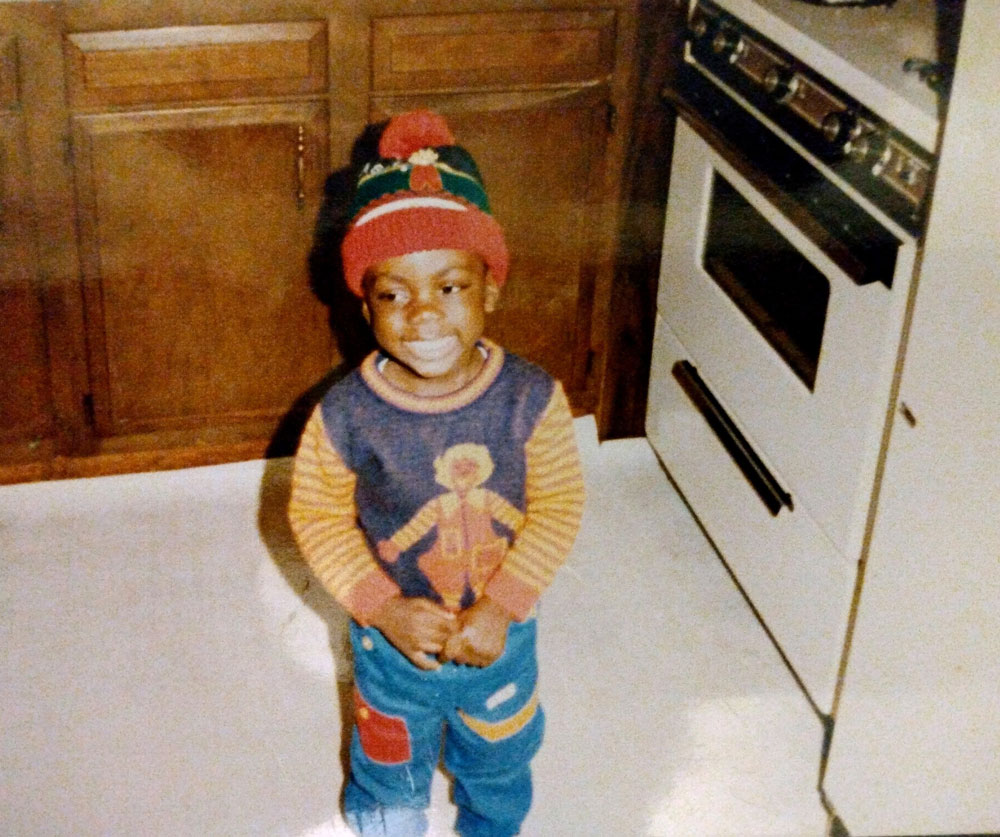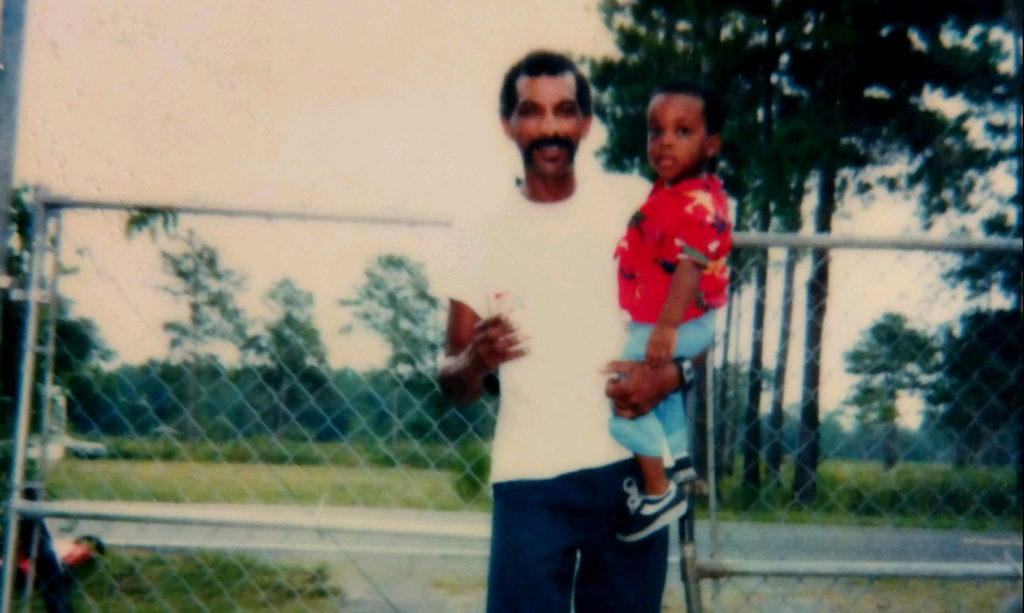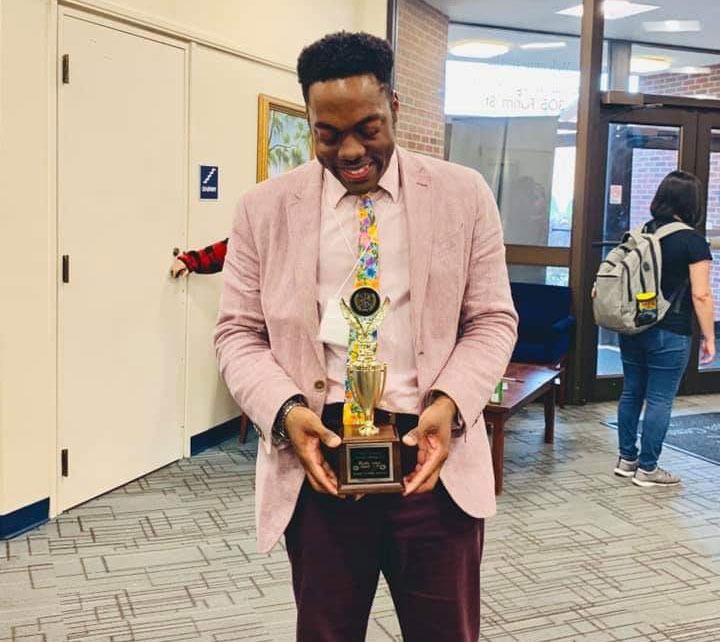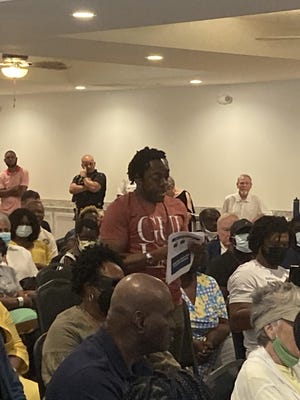Georgia Born, South Carolina Raised, and Gullah Accented, Meet the Person Hoping to be Your Next Congressman.
Gregg “Marcel” Dixon, the third of his parents, high school sweethearts, four children, is Georgia-born, the port city of Savannah, and South Carolina raised, just minutes away in the small, rural town of Ridgeland. Both areas are home to the Sea Island Creoles, or as they are better known, the Gullah-Geechee, a Black American ethnic group native to the sea islands, and the Lowcountry of the Gullah-Geechee Corridor where his family has resided since at least the mid-1700s. Even though he was a student of the Jasper County School District, South Carolina’s lowest performing district, a very troubled school system part of the state’s so-called “Corridor of Shame”, his childhood days, especially the earliest parts, were marked by love, happiness, and his rich, unique culture. He grew up with a large immediate and extended family that included his mother, his grandmother; his great grandmother; his grandfather, his two granduncles, his two uncles, his two aunts, his two cousins, and his three siblings. His great-grandaunts and cousins provided him and his siblings with a constant source of companionship, affection, camaraderie, and protection in their longtime community along a busy stretch of coastal highway that connected his town to the more popular Lowcountry destinations of Hilton Head Island, Beaufort, and Savannah. From all, he witnessed overwhelming compassion and empathy as they clothed, fed, protected, and housed many in need even though they were all people of modest means themselves. It was truly a wonderful time in his life.

Marcel, pictured here in his great-grandmother's kitchen, grew up with a large family, surrounded by people who were loving, compassionate, and generous, but there was also deep pain.
However, there was also deep pain, the pain of poverty, premature death, drug addiction, domestic violence, mental illness, unaddressed trauma, sickness, and the damaging legacy of anti-black racism. Both his parents had suffered deep losses in their childhoods. His mother’s father died when she was just the tender age of six from a heroin overdose. Her mother, his dear grandmother, suffered decades from illness to which she would eventually succumb four days after Marcel’s 9th birthday as a result of an allergic reaction to a blood transfusion given to her during a challenging pregnancy. His father’s mother was also severely addicted to drugs for a time, during which he was raised in abject poverty by his elderly great-grandparents. This was in spite of the fact that both his great-grandfather and grandfather were World War I and II veterans, respectively. Both had been denied the rights, benefits, and opportunities to which white veterans and their families had access, benefits that allowed millions of them to escape poverty and enter the middle and upper class. His father grew very poor, lonely, and struggled with profound feelings of neglect and abandonment. These experiences still cause intense emotions in both of his parents to this day. Shortly after the death of his grandmother, Marcel’s parents separated and would eventually divorce, marking the end of a relationship that had been marked by tumult, including his father’s own severe struggles with drug addiction. Marcel shortly experienced much trauma of his own that included bullying, emotional abuse, sexual abuse, and a strained relationship with his father.
For a short time, he attended school in Atlanta, this period was marked by extreme loneliness as he was separated from his community for the first time in his life and it was here that he experienced the onset of severe depression, something he would suffer from in deep agony for nearly two decades before receiving professional help. He was overjoyed to return home to his community but his joy was not to last long. A “development” project to widen the highway by the state of South Carolina, via eminent domain, led members of his immediate and extended family to move elsewhere, and the subsequent destruction of his beloved community.

Marcel, pictured here with his grandfather Chama, in the mid 1980s had lived in the same community where he, his siblings, and his cousins’ great-grandparents, grandparents, parents, and more had lived, along a stretch of coastal highway in Ridgeland, South Carolina. Due to “development” that pushed him and many of his relatives out, his beloved community is no more.
After high school, Marcel, like many of his peers, did not have much of a plan and worked various jobs in the service sector. One was as a dietary aide at a hospital where through his conversations with patients that were hospitalized and patrons of the hospital’s cafeteria alike, he saw and heard upfront how people suffering from severe illnesses and most of all, their loved ones, worried more about the financial cost of getting better than just getting better. This was especially true of the people that looked like him. Another was as a used car salesman where he was shocked and heartbroken to see just how little his clients, again, especially his fellow Black Americans, were earning while having to raise families and care for themselves.
During that time he started substituting at the school he attended as a child, the majority of its population still predominantly Black American and poor. There, his administrators noticed his positive influence on students and encouraged him to pursue his teacher certification. His high energy, powerful voice, animated method of engaging his students, coupled with his no-nonsense, “never let you give up on yourself and settle for anything less than the best” attitude of supporting and pushing his pupils to become the best version of themselves, led to his students consistently having high test scores and made him quite the sought after teacher. During this time, he also earned many accolades and recognitions from Service Employee to School Teacher to District Teacher of the Year to the highest rating for teacher effectiveness of EVAAS Five, year in, and year out, to writing tens of thousands of dollars in grants to fund projects to several trophies while serving as a coach for scholastic competitions and more.

While Marcel’s students experienced much success within and outside the school walls, they were always far too short, and he quickly realized the needs of the students and the families he served went far, far beyond the classroom.
His celebrations, however, were always cut short. For every success he saw, far too many of his students and members of their families would fall into a life of crime and incarceration, languish in deep poverty, contend with serious issues of domestic dysfunction, suffer from untreated mental and physical illnesses, and become victims of gun violence, his oldest brother and one of his uncles being among that number. Even the students that would do things the “right way”, attending college, delay having children, marriage, and more would often fare just a little better. These experiences not only pained and embittered him, but they also made him even more aware of the deep racial disparities he had known and lived his entire life. Even being the most effective educator was simply not doing enough to tackle the severe systemic barriers the majority of his students, especially his black students, and community were having to face. Always being a very bold person, willing to put himself out there, to speak out courageously and unrelentingly for what is right, and against what is unjust, and challenge the status quo even when it meant falling out of grace with many. He cast aside his long-held, beloved religious convictions, and entered the unfamiliar world of political advocacy seeking to bring justice to people, especially his fellow Black Americans that have waited several centuries too long for such.

Marcel has always been known for being bold when it comes to speaking against structural injustices and impatient when it comes to implementing solutions to solve problems that persisted for too long.
Marcel has seen how every aspect of his life ties back to this country’s long history of anti-black racism and he is known for pushing himself to become the best version of himself, as his mother has always pushed him to be, and as he demands of his students. He is known for being audacious, even when he receives the disfavor of those in power, he does not cease fighting for what is right. That is just what you will have with Marcel as your next representative, a person that will not cease fighting for you, even when it may not be the popular thing to do. A person that does not just feel empathy with whatever pain you are going through, whether it be it racial, economical, educational, social, physical, or emotional, but fully understands the agony they cause because he has experienced all of them throughout his life. Like many of the people he seeks to serve, his life has been rough. He has said the painful goodbyes, he has had the sleepless nights, he has shed the tears, he has felt the deep anger, he has been through the storm, and in many ways, he is still in it. Nevertheless, he stands in the rain with you, inviting you under his umbrella, doing exactly what he knows is necessary, what is right, until the sun shines again, and no matter what, we must believe that it will shine again.

